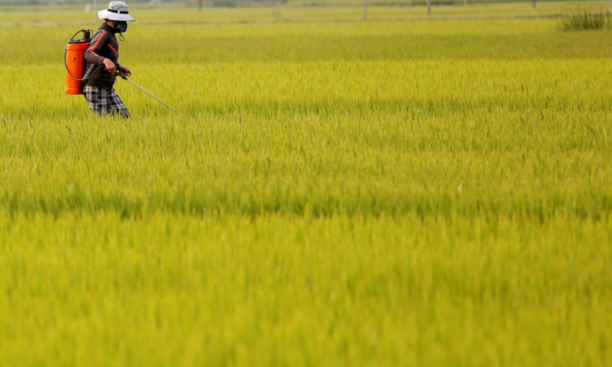There are huge concerns that macroeconomic fundamentals are revealing that Nigeria’s inflation figures for July will be much higher than what was reported in June.
This is expected to worsen the citizens’ suffering as the 150-day import duty-free incentive and 20 truckloads of rice to each state and Federal Capital Territory are not expected to cushion rising food prices as they are knee-jerk and not a long-lasting solution.
On Monday, July 15, the country’s National Bureau of Statistics (NBS) released the July inflation figures, reporting that headline inflation rose to 34.19 percent in June from 33.95 percent in May.

Food inflation, the major driver of the pressure, increased to 40.80 percent in June from 40.33 percent in May. According to the NBS report, the inflation figures increased on a year-on-year and month-on-month basis.
Garri, yam, groundnut oil, palm oil, and millet were items that spiked the rise in food inflation while meat, eggs, and chicken that contain protein were absent from the food items.
At 34.19%, Nigeria’s inflation is now at a 28-year high and has increased for 19 months consecutively... To cushion the impacts of inflation, the federal government recently announced a few measures.
On July 8, the federal government approved a 150-day duty-free waver for rice, maize, and wheat to address rising food inflation in the country by suspending the tariff on imported food items through both land and sea borders.
A bold step, however, the measure might not deliver a lasting solution to the country’s food insecurity, experts said. On July 15, the federal government announced the donation of about 20 trucks of rice to each of the 36 states and the FCT to cushion the country’s food crisis.
According to the Minister of Information and Orientation, Mohammed Idris, who disclosed this to journalists at the end of the Federal Executive Council meeting, each truckload contains about 1,200 (25kg) bags of rice, expected to be distributed to vulnerable Nigerians by the state governments.
Economic conditions likely to spike July inflation
Analysts believe that the June inflation was not a typical month, compared to the prior year as Nigerians suffered from high flood and petrol shortages. Former director-general of the Lagos Chamber of Commerce, Muda Yusuf told The ICIR that that the key factors driving inflation were still very much at play.
“Exchange rate is still an issue, insecurity is still an issue, cost of transportation is still an issue, cost of fuel is still there. All those problems are still there and that’s why inflation keeps rising,” he said.
More determining factors were the public holidays in June, especially the Muslim celebrations which pushed up economic activities and demand for food products.
The full effect of these developments manifests in the July inflation figures which are expected to be higher than the June numbers, the Financial Derivatives Company (FDC)posits in its ‘June Post-Inflation Report’ released on July 15.
“The inflation outlook for July looks gloomy. Despite some signs of cooling in June and the impact of the base effect in July, several factors suggest that inflation may remain high,” the report stated. One other major development in the FDC lookout for July is the imminent passing of a new minimum wage law.
“From all indications, the effect of a new minimum wage will trigger cost-push inflation,” it added. While the inflation figures were not a surprise, a renowned economist, Bismarck Rewane, noted that a couple of activities happened in June.
He noted there were fuel supply shortages, public holidays, and June being the end of the planting season with expectations that July-August would be the beginning of harvest season.
Rewane said realistically that people were beginning to resist price increases, explaining that incomes were down and the cost of living crisis was affecting people’s purchasing power.
He said the prices of basic items like garri and yams increased higher than food with protein, meat, fish, and other livestock in the June inflation figures.
Rewane pointed out that cereals including garri, yams, groundnut oil, palm oil, and millet were the food items that increased the most in the NBS food basket inflation report.
A look at the FDC’s latest commodities update shows that prices of some food items were coming down.
For instance, a 50kg bag of yellow garri has dropped to N45,000 from previously at N47,000; long-grain rice (50kg) to N82,000 from N85,000; and flour (50kg) to N52,000 from N59,000.
On the contrary, a (50kg) bag of Oloyin beans increased to N150,000 from N95,000; a basket of tomatoes to N140,000 from N110,000; a big bag of pepper to N160,000 from N140,000; and a bag of onions to N100,000 from N90,000.
In the last two or three days, the prices of some food items have further dropped while some have increased, Rewane said. “One, there have been smuggling of commodities across the borders. Two there has been resistance in income, and three the petrol price increase is having a feeling effect on the pricing of commodities.”
“So, people are going back to the basic (garri, flour, etc) and not to the luxury (ostentatious) goods,” he said. The price of foods containing proteins has become a luxury as most Nigerians eat less chicken, beef, and fish.
“You know what happened to the tomatoes that it went all the way up and now it is beginning to come down because people were switching to carrots and other things,” Rewane said. Commenting on the 150-day duty-free importation and the 20 truckloads of rice to each state and FCT, he said it could be looked at from two points.
“One is a stabilization space where you have a crisis and the other one is where you have a long-term space where you have now built capacity to increase output and aggregate supply.
“What has happened now in this short-term measure is to import commodities to force down the prices. The renowned economist, who spoke at a Channels Television on Tuesday, July 16, said Nigeria’s economy was in debt, poverty, and output crisis, ameliorating the immediate pains on the masses requires the temporary infusion of import to bring down the price of goods which would not solve the problem.
Stressing that the major problem is about growth, investment, and output, lamented that the short-term measure of the government doesn’t seem to be getting to the vulnerable people.
“The big problem is who are the people, who are identifying them? Is it going to be scandal-free, judiciously executed in such a way that the impact is felt? He said, questioning further whether the institution’s infrastructure is available to ensure that the bags and trucks of rice get to the people in those states.
Source: ICIRNigeria





